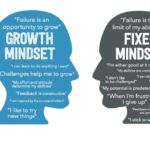How to Develop Emotional Intelligence for Better Relationships
In today’s fast-paced world, relationships—whether romantic, familial, or professional—can be challenging to navigate. One of the most critical skills that can help you build stronger, more meaningful connections is emotional intelligence (EQ).
Emotional intelligence is the ability to recognize, understand, and manage your emotions while also being able to perceive and respond appropriately to the emotions of others. It plays a vital role in communication, conflict resolution, and overall relationship satisfaction. The good news? EQ is a skill that can be developed and strengthened over time.
The Five Pillars of Emotional Intelligence
To enhance your emotional intelligence, focus on these five core components:
1. Self-Awareness
Understanding your own emotions is the foundation of EQ. When you recognize what you’re feeling and why, you gain better control over your reactions.
- Practice mindfulness to observe your emotions without judgment.
- Keep a journal to reflect on your emotional responses.
- Ask for feedback from close friends or loved ones about how you handle emotions.
2. Self-Regulation
Being emotionally intelligent means managing your emotions rather than letting them control you.
- Take deep breaths or count to ten before reacting impulsively.
- Develop healthy coping mechanisms such as meditation, exercise, or creative outlets.
- Learn to pause and respond thoughtfully rather than reacting emotionally.
3. Motivation
People with high EQ are driven by intrinsic goals rather than external rewards. This helps them stay positive and resilient in relationships.
- Set personal growth goals that align with your values.
- Reframe challenges as opportunities for growth.
- Practice gratitude to maintain a positive mindset.
4. Empathy
Empathy is the ability to understand and share the feelings of others. It strengthens emotional connections and fosters trust.
- Listen actively without interrupting or formulating a response while the other person is speaking.
- Put yourself in the other person’s shoes before making judgments.
- Validate others’ feelings, even if you don’t fully agree with them.
5. Social Skills
Strong interpersonal skills allow you to communicate effectively, resolve conflicts, and build deeper relationships.
- Learn to express yourself clearly and assertively without being aggressive.
- Work on conflict resolution skills by approaching disagreements with curiosity rather than defensiveness.
- Practice kindness and appreciation in everyday interactions.
Practical Ways to Develop Emotional Intelligence in Relationships
Now that you understand the five pillars of EQ, here are some practical ways to apply them to your relationships:
✅ Practice Active Listening – Give the speaker your full attention, make eye contact, and acknowledge their emotions.
✅ Recognize Emotional Triggers – Identify what situations or words trigger strong emotions in you and learn to manage them.
✅ Communicate Openly – Express your emotions honestly but respectfully, and encourage others to do the same.
✅ Apologize and Forgive – Let go of grudges and learn to say sorry when necessary. Emotional intelligence includes humility and accountability.
✅ Stay Present – Avoid distractions when spending time with loved ones. Quality time fosters stronger emotional bonds.
Final Thoughts
Developing emotional intelligence takes time and effort, but the rewards are invaluable. By improving your EQ, you will not only strengthen your personal and professional relationships but also experience greater self-awareness and emotional well-being.
Start small—choose one area to work on and make conscious efforts to improve. With practice, you’ll notice deeper connections, reduced conflicts, and an overall improvement in the quality of your relationships.



